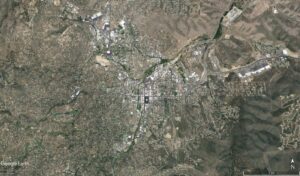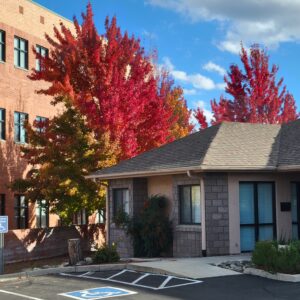PARTITION
Arizona land disputes: Partition & Quiet Title. Have an Arizona land or real estate dispute? Thinking about Partition or Quiet Title? When you own Arizona land (including a house) with someone else and there is a dispute, we may be able to help. Call us today at (928) 445-3230.

Partition of Arizona Real Property
A lawsuit to “Partition” the land will settle disputes by forcing a division or sale of the real property (including any buildings). A Partition lawsuit seeks to divide the land (if it can be split) or to force a sale of the land and divide the proceeds of sale. A Partition & Quiet Title lawsuit seeks to divide the land and determine ownership issues.
In Arizona, partition lawsuits are a legal process used to divide real property between two or more co-owners who are unable to agree on how to use or manage the property. This can be a useful tool for individuals who own property with others but are facing disputes or disagreements over how to use or manage the property.
A partition lawsuit can be filed by any co-owner of the property, including joint tenants, tenants in common, or other types of co-owners. The lawsuit seeks to divide the property into separate parcels or portions, allowing each co-owner to have their own piece of the property that they can use or manage independently.
There are two main types of partition lawsuits in Arizona: partition in kind and partition by sale. Partition in kind involves physically dividing the property into separate parcels or portions, while partition by sale involves selling the entire property and dividing the proceeds among the co-owners.
In a partition in kind lawsuit, the court will first determine the fair market value of the property and then divide the property into separate parcels or portions based on that value. Each co-owner will then be allocated a portion of the property based on their ownership interest, allowing them to use or manage that portion of the property independently.
In a partition by sale lawsuit, the court will order the entire property to be sold and the proceeds divided among the co-owners. The court will typically appoint a neutral third-party, such as a real estate agent or auctioneer, to sell the property and ensure that the proceeds are distributed fairly among the co-owners.
Both partition in kind and partition by sale can be complex legal processes, requiring the assistance of an experienced attorney. In addition, partition lawsuits can be time-consuming and expensive, as they often involve appraisals, property surveys, and other legal and administrative expenses.
However, for co-owners who are unable to agree on how to use or manage their property, a partition lawsuit can be a useful tool for resolving disputes and allowing each co-owner to use or manage their portion of the property independently.
Overall, if you are a co-owner of real property in Arizona and are facing disputes or disagreements with other co-owners over how to use or manage the property, a partition lawsuit may be a viable option for resolving these issues. By working with an experienced attorney and following the legal process, you can obtain a fair and equitable resolution to your property disputes and move forward with your property ownership interests.
If you own an interest in Arizona land, a co-owner of that land cannot prevent the Court from entering a Judgment of Partition. A Judgment is an official court order. A Judgment of Partition declares who owns what interest in the land, and orders the land to be partitioned (divided) or sold.
The basic steps involved in a Partition lawsuit are: (1) prepare and file lawsuit papers; (2) serve lawsuit papers on the other owner/s of the land; (3) after other owner/s file a response to the lawsuit, prepare and file a motion for partial summary judgment to obtain a Judgment of Partition; (4) Seek the appointment (by the Court) of 1 to 3 people to make the Partition and/or to sell the land, having the proceeds of sale paid directly to the Clerk of the Court to hold temporarily; (5) if necessary, prepare and file another motion for partial summary judgment to obtain a declaration by the court of who owns what interest in the land; and, (6) prepare and file a motion to obtain an order from the court directing the Clerk of Court to distribute (pay out) the sale proceeds in the manner directed by the court.
In Arizona, Partition lawsuits are governed by specific Arizona statutes. After the Court enters a Judgment of Partition, the real work begins. A person or persons are appointed by the Court to conduct the land division. These persons are called “Commissioners.” Often, they are real estate professionals. If the land consists of a building (such as a home or an office building), the land will be listed for sale. The Commissioner/s will sell the land (including building) and have the escrow company pay the proceeds to the Clerk of the Court. The Clerk of Court will hold the proceeds until the Judge decides who gets what portion of the proceeds. Once the Court decides who gets what, the Court will order the Clerk to disburse the money to the person/s entitled thereto in the amount ordered by the Court.
A “Litigation Guaranty” is a specific type of title report from an Arizona title company showing the condition of title and who claims an interest in the land. Sometimes (not always), a “Litigation Guaranty” is necessary to undertake representation in a Partition lawsuit.
The cost of a “Litigation Guaranty” and the cost of service of process are in addition to legal fees. Sometimes (not always) a new survey may be appropriate, which is an additional expense not included in the legal fees.
We have represented many people in Partition lawsuits. A successful Partition lawsuit begins with a proper investigation of who owns what interest in the land. Obtaining a “Chain of Title” Report will indicate who owns an interest in the land, and how that interest was acquired. A skilled litigator can focus that investigation on the things which will increase the chance of success.
There are many procedures and techniques which can maximize the chance of success. Usually, the sooner these techniques are employed the better the chance of success. An experienced Partition attorney should be consulted as early as possible.
See also: https://goodmanlaw.com/quiet-title/
If you have a dispute involving Arizona real property or need help with a Partition and Quiet Title lawsuit, contact us today for a consultation: Contact us.

Fair Street Office
